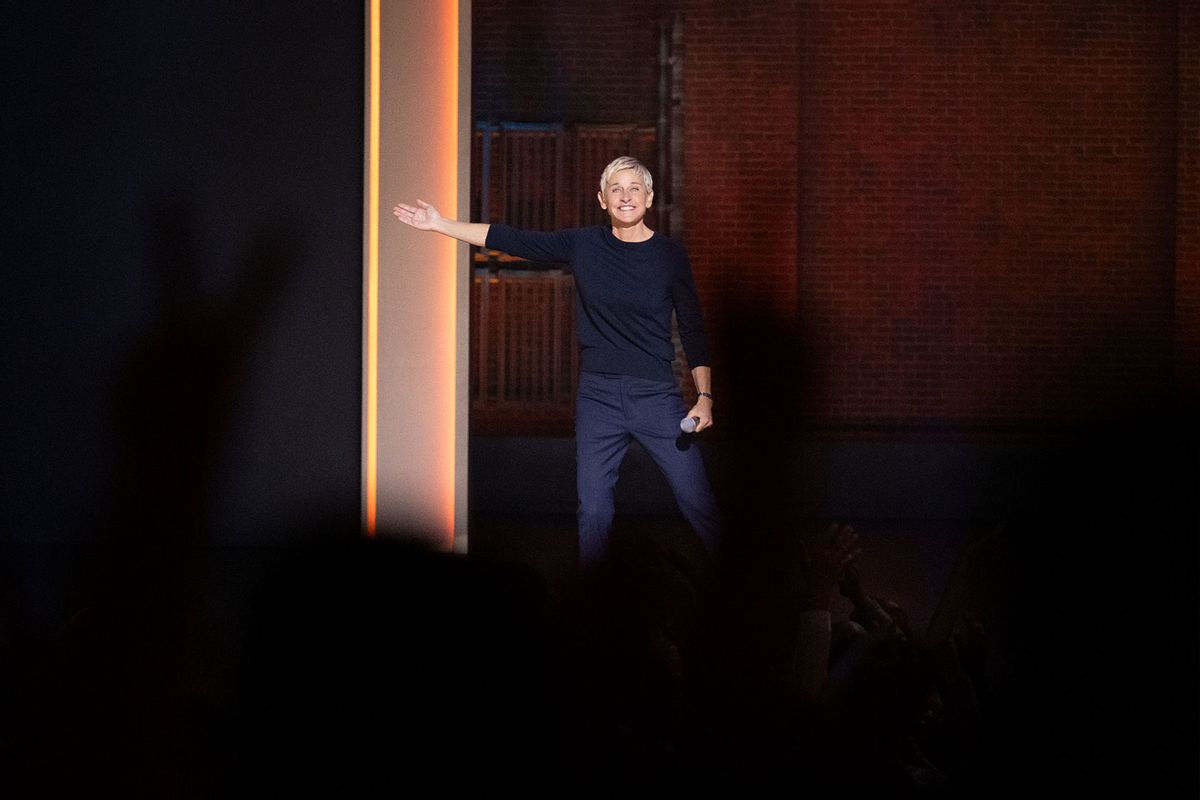

2020 was an unforgettable year, but not only because it saw the onset of a global pandemic. It was the year that saw the genesis of internet cancel culture, in which social media became the arbiter of often contested “justice” for a swath of influencers, celebrities, politicians, and the like.
None felt the sting of 2020’s cancel culture more acutely than comedian and talk show host Ellen DeGeneres, who, along with her eponymous talk-variety show, was taken down by the phenomenon when it was revealed that she — known largely for her “Be kind” show sign off — was in fact a very “mean” person and boss. During that year’s spring and summer seasons, DeGeneres and her plucky show were hit with numerous reports from ex-employees detailing alleged mistreatment and misconduct, racist behavior, intimidation, sexual misconduct, (which was said to have been committed by her executive producers), pay reduction, and more, leading to an investigation by WarnerMedia.
“The Ellen DeGeneres Show” ultimately shuttered after 19 seasons in May of 2022.
Given the intense impact of cancel culture on the broader zeitgeist — an effect that seems to show no signs of slowing down — it’s no surprise that several comedians have elected to regurgitate their cancellable offenses as fodder for their Netflix stand-up specials (and not merely because everyone seems to have one now.) Take John Mulaney‘s 2023 “Baby J: A Wide-Ranging Conversation,” which honed in on the comedian’s addiction to cocaine, Percocet, and Klonopin. Mulaney turned his trip to rehab into material, ragging on himself by recounting stories from the height of his addiction, such as an intervention staged by A-lister friends of his.
But when it comes to DeGeneres’ new comedy special, “For Your Approval,” the discussion of her own cancellable offenses doesn’t land as cleanly.
“For Your Approval,” which is DeGeneres’ self-proclaimed final hurrah, starts on a relatively self-indulgent and self-pitying note. We see DeGeneres sitting in front of a dressing room mirror before she gets up and begins making her way toward the stage. As she does, she’s overlaid by a video montage chronicling the rise and fall (times two) of her career — a projection of her first time on Johnny Carson’s “Tonight Show,” footage from her ’90s sitcom, her cancellation after coming out as a lesbian, instructions from her “Finding Nemo” character — Dory — to “Just keep swimming” and more. The sharp cut to DeGeneres’ quiet, relaxed, crewneck-sweater demeanor makes this intro all the more disjointed.
Between little “yeahs” and “yups,” she offers her audience a few bits about failing at a parallel parking job, how annoying windshield wipers are, and the beauty of butterflies’ metamorphosis (all of which seem to be benign attempts to connect her own experience with departing from daytime TV.)
Want a daily wrap-up of all the news and commentary Salon has to offer? Subscribe to our morning newsletter, Crash Course.
When DeGeneres gets into the meat of her special, she addresses it head-on . . . but doesn’t go further than that.
“I got kicked out of show business,” she says, claiming that “mean people” can’t exist in the industry. But she doesn’t elaborate, instead, complementing her observation with a similar one later on that you “can’t be gay in show business.”
“Mean, old, and gay. I was the triple crown,” DeGeneres says.
DeGeneres’ failure to acknowledge those affected by her leadership failings makes it hard to empathize with her situation.
She goes on to detail her immaturity as a boss with an anecdote about a button in her office that would release fake snakes from the ceiling, explaining herself away by saying that she “didn’t want to be a boss” in the first place. The reason? “I didn’t go to business school. I went to Charlie’s Chuckle Hut.” It’s a hardly convincing logic.
And while her observations about the rampant homophobia that plagued her and her professional trajectory in the first half of her career are absolutely well-founded, DeGeneres’ failure to acknowledge those affected by her leadership failings makes it hard to empathize with her situation.
It becomes harder still when she attempts to patch up the empathy chasm with a delineation between male and female bosses. “Women are raised in a different way,” DeGeneres says, before sharing a personal moment about growing up in a neglectful home, and having OCD and ADD. Certainly, DeGeneres’ audience is aware of the stark gender discrepancies in how bosses of the opposite sex are treated and expected to act — she doesn’t need to lecture them on this front. What she needed to do was, instead, address her own inadequacies as a boss and her failure to protect her staff, which have nothing to do with her gender, but rather her sense of investment in her people.
Plus, as Salon’s Melanie McFarland noted in a commentary about comedians who have reaped the unexpected benefits of cancel culture, DeGeneres’ industry ousting “mostly amounts to a time-out.” How canceled can you be when you’re still collecting the literal and figurative benefits of a Netflix special?
“What about the egos and self-esteem of the more than 47 former employees who detailed their painful experiences to BuzzFeed, some of whom left the business after working for “Ellen”? DeGeneres’ audience was thinking about them, too,” McFarland argued.
Given that DeGeneres kicks off “For Your Approval” with the candid observation that she does, in fact, care what people think about her, the concluding messages in the special register as deeply discordant.
“I’m happy not being a boss or a brand or a billboard, just a multifaceted person,” she says.
So if Ellen still cares what we think, her 70 minutes of standup might have been better spent by actually grappling with her peccadilloes, rather than using them to fan the flames of her own ego. While she tries to convince us that she’s self-salvaged her reputation by caring just the right amount (which, by her definition, means not at all), “For Your Approval” seems to plead with its audience for exactly that.
Read more
about this topic







